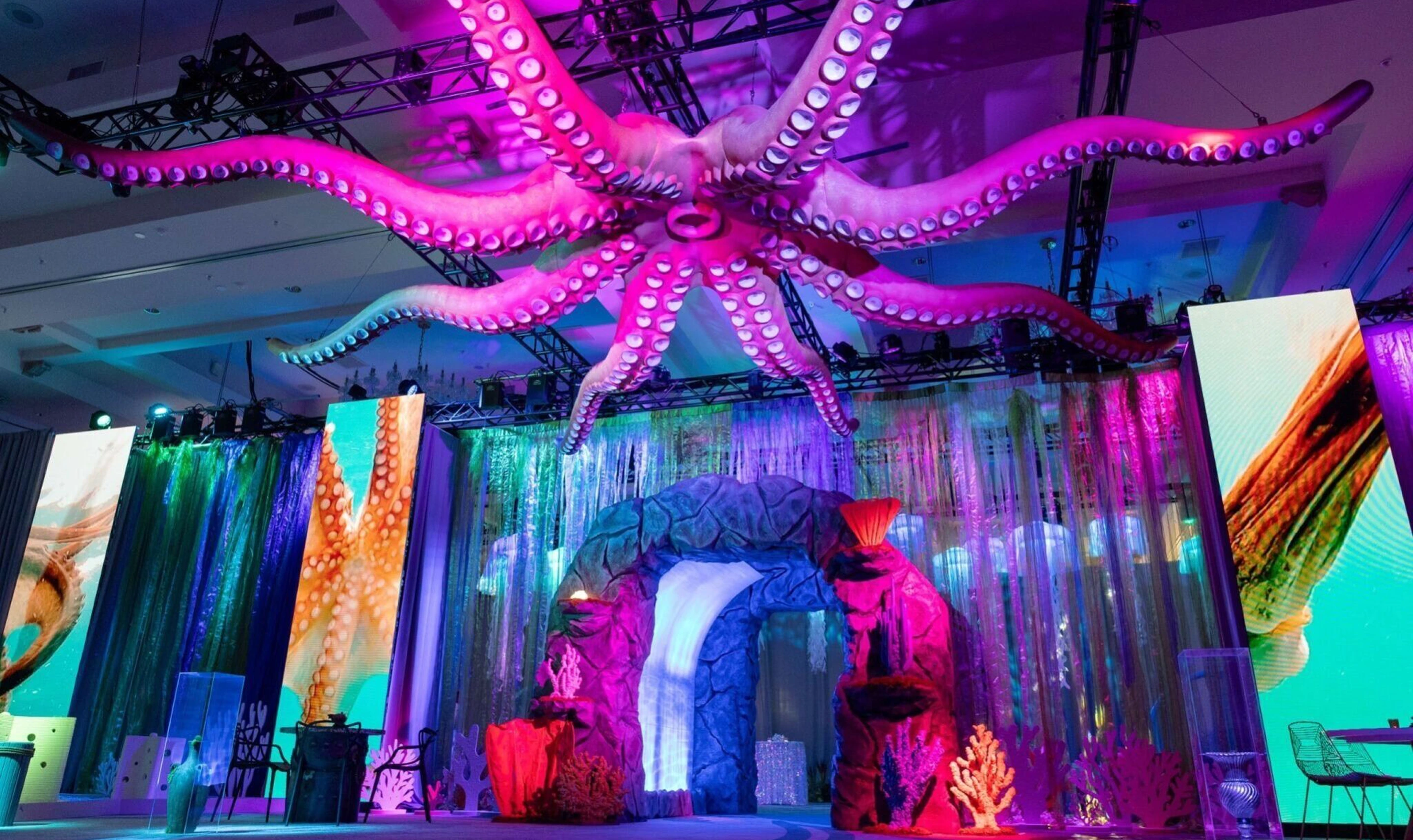
Hybrid experience may not be a term you’ve heard before, but everyone will come to understand hybrid in 2021. After a year of seemingly all interactions becoming virtual, people have grown accustomed to the unique benefits virtual experiences offer and want to continue aspects of that in future marketing plans. How can future in-person events also deliver a meaningful simultaneous virtual experience for those who want or need it? With a well-crafted hybrid event.
What is a hybrid event?
A hybrid event is an intentionally designed experience that consists of two well-timed experiences (in-person and virtual) that have to intersect seamlessly. The virtual and in-person audiences feel like they are one audience sharing an experience equally, and the specific needs of each audience are served.
If you take only one thing away from this blog post, let it be this: a hybrid event is not a live stream of an in-person event. The concept of a hybrid event is so new that people don’t yet have a mental image of it, and they assume that it means putting a camera in the back of an auditorium so everyone at home can watch. Not only is this not what a hybrid event is, it’s a flawed model because it creates a second-class experience for one group of attendees (the people participating virtually).
What’s involved in a hybrid event?
Hybrid events are more complex to design and produce because they serve multiple audiences. Because of this complexity and the level of planning required, not every agency can produce one successfully.
The good news is that a hybrid event can be designed to incorporate almost any virtual technology platform—because they aren’t about the platform. They are about the production. Think of a hybrid event like a major motion picture: it requires directors, audio engineers, graphics designers and animators, lighting engineers, and even special equipment (like specific cameras that shoot for the visual space). The selection of this team is crucial to the event’s success.
A hybrid event also requires two of almost everything: two emcees, two sets, two production teams, two sets of visual assets, two scripts. This is important to ensure that each audience has a first-class experience. Virtual attendees shouldn’t feel that they’re removed from the live experience, and in-person attendees shouldn’t have their experience hampered by being squeezed into a virtual mold.
Every aspect needs to be thoughtfully planned. For example, if slides will be part of a presentation, how can those slides best be presented to each audience so they can engage with the material? If attendees will be in different time zones, what adjustments to language might need to be made (“We’ll return at ten after the hour” instead of “We’ll return at 10:10”).
All of these details matter, because the stakes are high. Virtual attendees can simply drop out and never return, and live audiences can feel alienated because mistakes are made. The pandemic has turned almost everyone into a virtual connoisseur, and people have higher expectations for virtual (and therefore hybrid) events now than they may have before. A hybrid event gone wrong can damage relationships and brand reputation, so it’s vital to invest the time and resources into detailed planning.
Why should my organization care about hybrid events?
Hybrid events present a highly unique opportunity for building and strengthening relationships between groups of people that may not have otherwise interacted with each other. They are a tool for achieving specific strategic outcomes—not a fallback to something else. If creating and growing connections is important to your organization, you should care about hybrid events. (If, on the other hand, you really do just want your audience to watch a prerecorded video, you’d be better off with a more basic solution.)
Hybrid events give you a way to increase your potential audience to include people who might not otherwise be able to attend in person because they can’t travel, have personal or professional obligations that prevent them from attending in person, or who would simply prefer to participate virtually. This allows you to intentionally expand your reach globally and attract more diverse audiences—even if your in-person space has a maximum capacity.
We know people have different ways of learning and interacting with content, and hybrid events give you more opportunities to design for a range of learning styles. They also allow you to create targeted messaging and tracts that best serve each audience. Both the approach and the benefits should be strategically architected for each audience.
"The question for hybrid events is not 'do you need one?' but 'why wouldn’t you want one?'"
Every successful brand strategy in 2021 must include a hybrid event, which can serve as the model for each year going forward or can be alternated each year with a virtual experience depending on the organization’s goals. Hybrid events are a new concept today, but they will shortly become as indispensable as a company website.
We can help you determine the right kind of hybrid experience design for your goals. Contact us today for a consultation about your hybrid experience opportunities.










